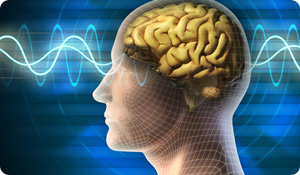
A recent study conducted at the Department of Physiology, School of Medicine, University of Dublin, Trinity College in Dublin asked a group of male college students who described themselves as "sedentary" to take part in a memory test followed by vigorous exercise. After exercising, they were asked to take the test again.
The study found that volunteers who exercised prior to the memory test performed better the second time around. Those who did not exercise did not show improvement.
What's more, blood samples taken during the test show that immediately after working out, the volunteers had higher levels of a protein known as BDNF, which is known to promote the health of nerve cells.
While scientists are still trying to figure out which parts of the brain are positively affected by exercise, this study conducted by the University of Dublin suggests that higher levels of BDNF brought about by exercise may improve memory and perhaps, overall brain function.
Other Brain Benefits
The cognitive upsides to regular exercise don't stop at memory. In fact, research has found that physical activity can have a variety of brain benefits:
1. Prevents cognitive decline such as dementia or Alzhemier's disease.
2. Improves symptoms associated with depression and bipolar disorder.
3. Combats stress and anxiety.
4. Enhances abilities associated with "planning, scheduling, inhibition, task coordination," according to a study conducted at the University of Illinois at Urbana-Champaign and Vrije Universiteit in Amsterdam.
Get Started Today
Going for a brisk walk three days a week, getting to the gym often, and running or riding your bike regularly can benefit you physically, emotionally, and intellectually. Research has supported this.
However, what if balancing work (maybe even two jobs), a family, and a personal life leaves you with little-to-no extra time or energy? What do you do then? A study published in the Archives of Internal Medicine found that remaining active, even if it means cleaning, gardening, or walking to the store regularly can "[protect] against cognitive impairment."
So whether you're running five miles a day or cleaning five rooms a day, remaining active and keeping yourself moving can, and will, benefit your brain.
Sources:
Activity Energy Expenditure and Incident Cognitive Impairment in Older Adults
http://archinte.ama-assn.org/cgi/content/full/171/14/1251
Exercise Appears To Improve Brain Function Among Younger People
http://www.sciencedaily.com/releases/2006/12/061219122200.htm
Growing Stronger - Strength Training for Older Adults
http://www.cdc.gov/physicalactivity/growingstronger/why/index.html
Aerobic exercise improves hippocampal function and increases BDNF in the serum of young adult males.
http://www.ncbi.nlm.nih.gov/pubmed/21722657





